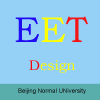-
Clear writing for international English readers
普通类 -
- 支持
- 批判
- 提问
- 解释
- 补充
- 删除
-
-
Clear writing for international English readers
INSTRUCTIONAL DESIGNERS WHO WRITE MATERIALS for non-native English-speaking employees (international readers) need to ensure that their Web based training material is written in a manner that is easy to understand.-
What happens when we read?
.jpg)
-
International readers of English
In contrast, international readers of English may read word-by-word, and have a shakier grasp of English grammar to aid them in reading. Because they read at a slower pace, their short-term memory cannot hold enough information to read as efficiently as native English speakers. Therefore, instructional writers need to write as clearly and compactly as possible to lessen the cognitive load on international readers. Writers should also avoid illustrations that require cultural knowledge. For example, the "Good Humor" reference above would be inappropriate for an international audience as it presumes that readers know that Good Humor trucks drive around selling ice-cream.
.jpg)
-
Setting the Stage
Give international readers a context for the material they are reading. Remind them of previously read material or experiences that will help them understand new material. Provide links so they can review what they have studied before.
-
Writing Clear Sentences
Sentences are easier to understand if writers draft them so the subject and its actions are clear. Use the active voice rather than the passive voice. The following sentence is difficult to understand because the actors are not directly mentioned, but implied. It also contains a provisional subject (it), which is also difficult for international readers.
.jpg)
Shorter sentences are usually easier to understand than long compound-complex sentences. However, writers should include important transitional expressions (consequently, however, etc.). Readers find strings of short sentences with no discourse markers more difficult to read than longer sentences with discourse markers that show the relationship among the sentences.
-
Idioms
- Avoid idiomatic phrases, for example, “Drop us a line if you have questions.”
- Avoid expressions that require knowledge of a particular culture. For example, “Sales staff should be able to provide ball-park figures for maintenance costs.”
-
Phrasal Verbs
Avoid phrasal verbs (put up with) and replace them with single verbs (endure) where possible. Although they appear simple because they are comprised of short words, phrasal verbs' meaning can be difficult to find in a dictionary.
-
Nominalizations
Avoid nominalizations (turning a verb or adjective into a noun), for example, decide
.jpg) decision, thoughtful
decision, thoughtful .jpg) thoughtfulness.
thoughtfulness. 
Decision has been changed into a verb in the second sentence, and the provisional subject, it, has been replaced by employees. The result is a clearer sentence.
-
Word Choice
Replace pompous words with plain ones.
.jpg)
-
Web Design Issues
Good Web design is always important, but even more important with international readers. They are less fluent readers and have fewer ways to compensate if they cannot navigate a Web site because it is poorly designed.
The advice in the following pages from the Encyclopedia of Educational Technology on Web design also applies to sites for international readers.-
More Information
Type Contrasts
Text Design
Web Page Text Design
Write to be Understood
Web Accessibility for Older Adults
McAlpine, R. From plain English to global English. http://www.webpagecontent.com/arc_archive/139/5/ Retrieved 1/22/02
Williams, Joseph, M. (1990). Style: Toward clarity and grace. Chicago: The University of Chicago Press.-
Author
Duncan Dixon ,Associate Professor of English ,Tokoha Gakuen University, Shizuoka, Japan.
-
-
- 标签:
- read
- readers
- web
- writing
- design
- clear
- english
- understand
- difficult
- writers
- international
- example
-
加入的知识群:



学习元评论 (0条)
聪明如你,不妨在这 发表你的看法与心得 ~